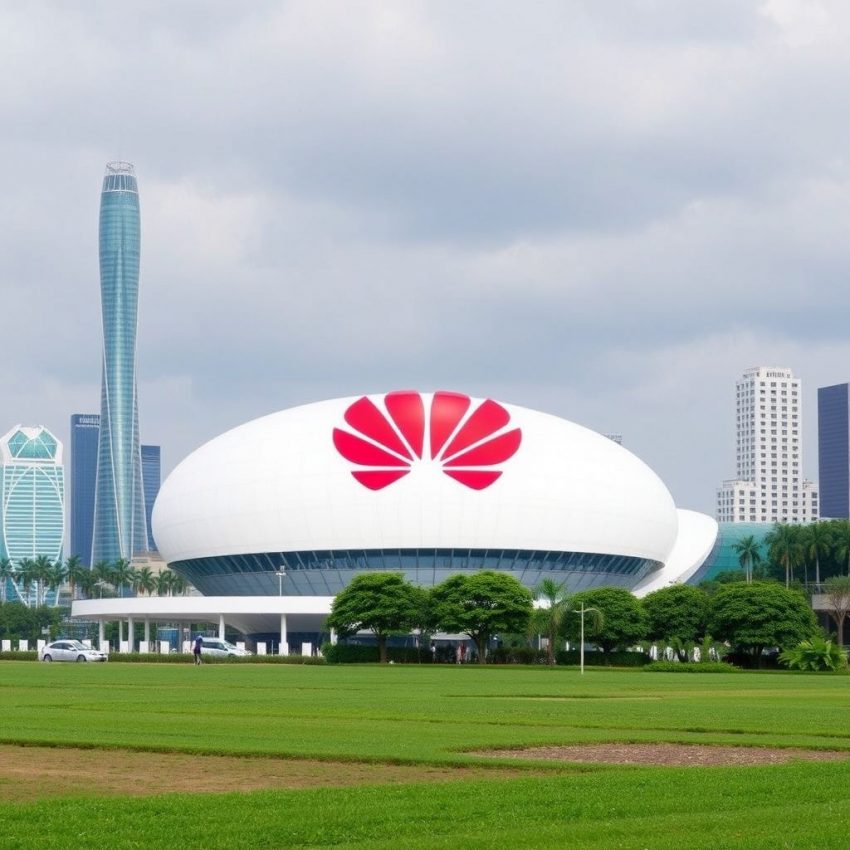Taiwan Tightens the Screws: Export Controls Target Huawei and SMIC
Taiwan, a crucial player in the global semiconductor industry, has joined the growing list of countries imposing export controls on Chinese tech giants Huawei and Semiconductor Manufacturing International Corporation (SMIC). This move, while not as sweeping as the US restrictions, significantly impacts the two companies' access to advanced chipmaking technology and represents a further escalation in the ongoing tech war between the US and China.
While specifics regarding the breadth and depth of Taiwan's new regulations remain somewhat opaque, the implications are clear: Taiwan's decision is a powerful blow to Huawei and SMIC's ambitions for technological self-reliance. Taiwan is home to Taiwan Semiconductor Manufacturing Company (TSMC), the world's leading chipmaker, and possesses a robust ecosystem of supporting companies crucial for semiconductor production. By restricting exports, Taiwan is limiting the availability of essential components and manufacturing capabilities for both Huawei and SMIC.
Why is this significant?
This move underscores several key points:
-
Strengthening the US-led alliance against China's tech ambitions: Taiwan's action aligns with the broader strategy pursued by the US and its allies to curb China's technological advancement, particularly in strategically sensitive areas like semiconductors. This coordinated approach aims to limit China's military and technological capabilities.
-
Protecting Taiwan's own national security interests: The decision also reflects Taiwan's own concerns about national security. The island nation is acutely aware of the potential threats posed by China, and restricting the flow of advanced technology to entities with potential military applications is a crucial aspect of its defense strategy.
-
Impact on global supply chains: The restrictions will inevitably create ripples across global supply chains. While not a complete shutdown, the reduced availability of Taiwanese technology will likely lead to higher costs, production delays, and potential shortages for certain products reliant on Huawei and SMIC technologies.
-
Uncertainty for the future: The lack of detailed information regarding the specifics of the new regulations leaves room for uncertainty. Companies relying on Taiwanese components may face difficulties navigating the new landscape, leading to potential legal and logistical challenges.
What's next?
The long-term impact of Taiwan's export controls will depend on several factors, including the precise scope of the restrictions, the response from China, and the effectiveness of any potential workarounds developed by Huawei and SMIC. It is likely that this move will further intensify the technological rivalry between the US and China, potentially leading to more complex and far-reaching consequences for the global economy.
This situation underscores the growing geopolitical importance of the semiconductor industry and highlights Taiwan's increasingly crucial role in shaping the future of technology and global power dynamics. The ongoing developments will be closely watched by businesses, governments, and technology enthusiasts alike.
Don’t miss out on this exclusive deal, specially curated for our readers! Flexibility matters: Explore deals with free cancellation options at Expedia.com
This page includes affiliate links. If you make a qualifying purchase through these links, I may earn a commission at no extra cost to you. For more details, please refer to the disclaimer page. disclaimer page.

